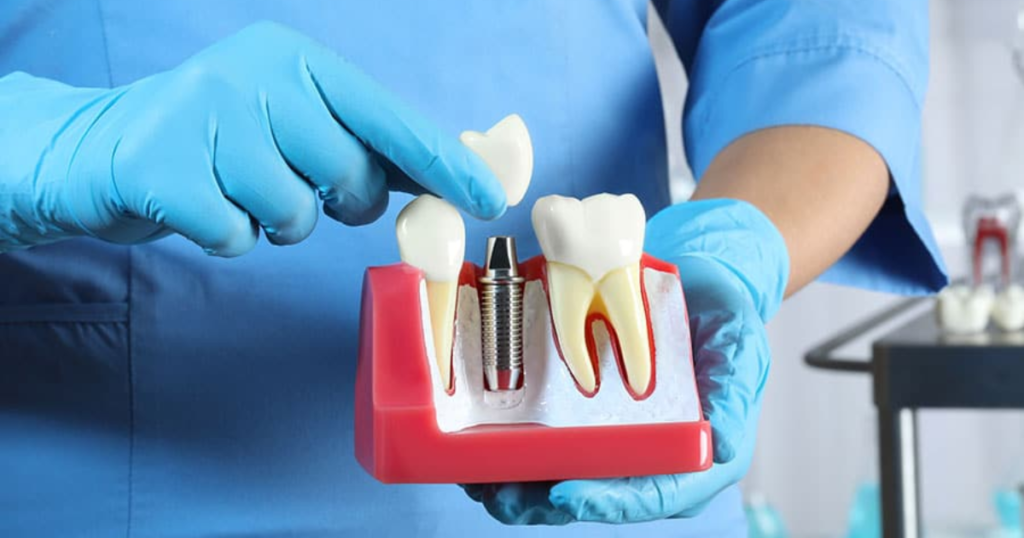
Dental insurance is a type of insurance that covers the costs of private or public dental care in the U.S. Dental insurance can help you pay for various dental services and treatments, such as check-ups, fillings, crowns, implants, braces, and emergencies. Dental insurance can also provide peace of mind and financial protection in case of unexpected dental problems.
Related articles
1- Principal Financial Group 401k
2- Certified Financial Advisor
There are different types of dental insurance policies available in the U.S., depending on your needs and preferences.
Some of the most common types are:
- Indemnity plans: These plans allow you to choose any dentist you want and pay a percentage of the cost of the service. The plan pays the rest of the cost directly to the dentist. You may have to pay a deductible and a maximum annual limit for your coverage1.
- Preferred provider organization (PPO) plans: These plans have a network of dentists who agree to charge lower fees for their services. You can choose any dentist within the network and pay a co-payment for each service. You can also choose a dentist outside the network, but you may have to pay more out-of-pocket costs1.
- Health maintenance organization (HMO) plans: These plans have a network of dentists who provide their services for a fixed monthly fee. You can only choose a dentist within the network and pay no or minimal co-payments for each service. However, you may have limited choices and flexibility in terms of the dentist and the treatment1.
These are some of the most common types of dental insurance policies in the U.S. However, there may be other types of dental insurance policies that offer different benefits and features, such as dental savings plans, dental discount plans, or dental reimbursement plans2. Therefore, it is important to compare different quotes and options from various providers before choosing a dental insurance policy that suits your goals and budget. You can use online tools such as UnitedHealthcare or MetLife to compare different quotes and options from various providers. You should also read the fine print of the policy document carefully to understand the terms and conditions, exclusions, limitations, and complaints procedures of the policy.
How dental Insurance can help with dental payments
Dental insurance is a type of insurance that can help you pay for the costs of private or NHS dental care in the U.S. Dental insurance can cover various dental services and treatments, such as check-ups, fillings, crowns, implants, braces, and emergencies. Dental insurance can also provide peace of mind and financial protection in case of unexpected dental problems.
There are different types of dental insurance policies available in the U.S., depending on your needs and preferences.
Some of the most common types are:
- Indemnity plans: These plans allow you to choose any dentist you want and pay a percentage of the cost of the service. The plan pays the rest of the cost directly to the dentist. You may have to pay a deductible and a maximum annual limit for your coverage1.
- Preferred provider organization (PPO) plans: These plans have a network of dentists who agree to charge lower fees for their services. You can choose any dentist within the network and pay a co-payment for each service. You can also choose a dentist outside the network, but you may have to pay more out-of-pocket costs1.
- Health maintenance organization (HMO) plans: These plans have a network of dentists who provide their services for a fixed monthly fee. You can only choose a dentist within the network and pay no or minimal co-payments for each service. However, you may have limited choices and flexibility in terms of the dentist and the treatment1.
These are some of the most common types of dental insurances policies in the U.S. However, there may be other types of dental insurance policies that offer different benefits and features, such as dental savings plans, dental discount plans, or dental reimbursement plans2. Therefore, it is important to compare different quotes and options from various providers before choosing a dental insurance policy that suits your goals and budget. You can use online tools such as UnitedHealthcare or MetLife to compare different quotes and options from various providers. You should also read the fine print of the policy document carefully to understand the terms and conditions, exclusions, limitations, and complaints procedures of the policy.
5 Tips to Get the Most Out of Your Dental Insurance
Dental insurance is a type of insurance that can help you pay for the costs of private or public dental care in the U.S. Dental insurance can cover various dental services and treatments, such as check-ups, fillings, crowns, implants, braces, and emergencies. Dental insurance can also provide peace of mind and financial protection in case of unexpected dental problems.
However, not all dental insurance policies are the same, and some may offer more benefits and features than others. Therefore, it is important to know how to make the most out of your dental insurance plan and get the best value for your money.
Here are five tips to help you do that:
- Review your statement of dental benefits to understand what’s covered and what’s not. Your statement of dental benefits is a document that summarizes the details of your dental insurances plan, such as the type of plan, the level of coverage, the deductible amount, the annual maximum limit, the co-payment percentage, and the exclusions and limitations. You should review this document carefully and familiarize yourself with the terms and conditions of your plan. You should also check your eligibility for any discounts or subsidies that may lower your premiums or out-of-pocket costs1.
- Take advantage of covered preventive services. Most dental insurances plans cover preventive services at 100%, which means you do not have to pay anything out of pocket for them. Preventive services include routine check-ups, cleanings, x-rays, fluoride treatments, and sealants. These services can help you maintain good oral health and prevent or detect dental problems early. By taking advantage of these services, you can save money on future treatments and avoid reaching your annual maximum limit too soon2.
- Schedule treatment when you’re eligible for the most dental insurance coverage. If you need a dentals treatment that is not fully covered by your plan, such as a filling or a crown, you should try to schedule it when you have the most dental insurances coverage available. For example, if your plan has a deductible that you have to pay before your insurance kicks in, you should schedule your treatment after you have met your deductible for the year. If your plan has an annual maximum limit that resets at the end of the year, you should schedule your treatment before the limit runs out or after it renews3.
- Use in-network dental providers to save money. Most dental insurance plans have a network of dentists who agree to charge lower fees for their services. You can choose any dentist within the network and pay a lower co-payment for each service. You can also choose a dentist outside the network, but you may have to pay more out-of-pocket costs2. To find out which dentists are in your network, you can contact your dental insurance company or use online tools such as UnitedHealthcare or MetLife to search for nearby providers23.
- Have a plan for dental emergencies. Dental emergencies can happen anytime and anywhere, and they can be very costly and stressful. To prepare for such situations, you should have a plan for how to handle them. You should know which dentists are available for emergency care in your area or in your travel destination. You should also know what your dental insurance covers for emergency care and what your co-payment or deductible is1. You should also keep your dental insurance card and contact information handy in case you need to show them or call them3.
These are five tips to help you get the most out of your dental insurance plan in the U.S. By following these tips, you can save money on your dental bills, get quality care for your oral health, and avoid unnecessary hassles and frustrations.
About the Author






0 Comments